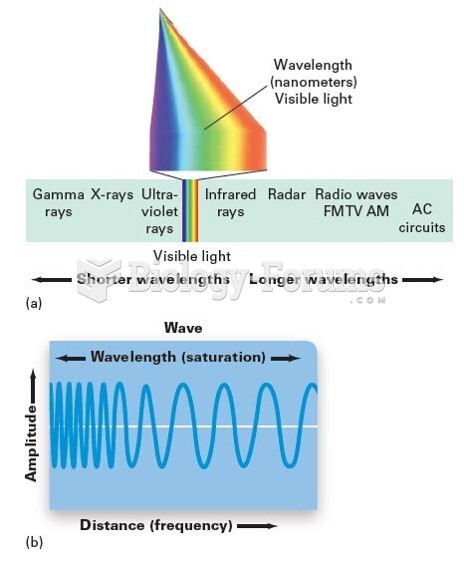This topic contains a solution. Click here to go to the answer
|
|
|
Did you know?
Human stomach acid is strong enough to dissolve small pieces of metal such as razor blades or staples.
Did you know?
The training of an anesthesiologist typically requires four years of college, 4 years of medical school, 1 year of internship, and 3 years of residency.
Did you know?
Parkinson's disease is both chronic and progressive. This means that it persists over a long period of time and that its symptoms grow worse over time.
Did you know?
To combat osteoporosis, changes in lifestyle and diet are recommended. At-risk patients should include 1,200 to 1,500 mg of calcium daily either via dietary means or with supplements.
Did you know?
About 3% of all pregnant women will give birth to twins, which is an increase in rate of nearly 60% since the early 1980s.
 Flower part number is a characteristic difference between monocots and eudicots (a) Flowers and buds
Flower part number is a characteristic difference between monocots and eudicots (a) Flowers and buds
 Model of a longitudinal study in which 983 students were surveyed in 1984 and then again in 1985, 19
Model of a longitudinal study in which 983 students were surveyed in 1984 and then again in 1985, 19





